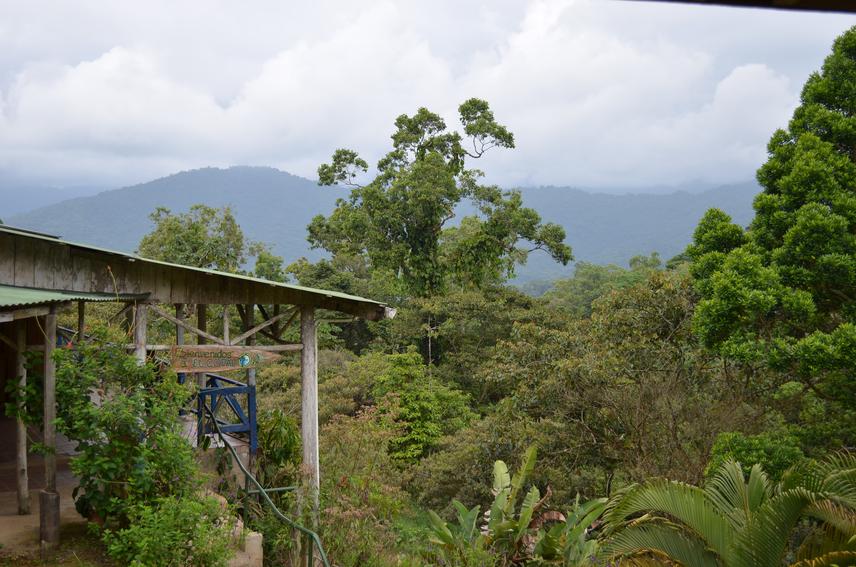Heather McTavish
To build the capacities of small rural eco-tourism businesses to better to conserve eco-system services and improve forest connectivity within the CBVCT using a participatory approach and practical tools.

El Copal, a community association of 23 landowners who have build a birding lodge.
The primary objective of this project is to improve the capacities of small rural and eco-tourism businesses to better conserve eco-system services and improve forest connectivity within the Talamanca Central Volcanic Biological Corridor (CBVCT).
The CBVCT is critical for forest connectivity between the Cordillera Volcaníca Central (which includes 2 national parks) in the north and Tapantí Macizo de la Muerte National Park in the south. The CBVCT spans over 114 000 hectares, 50% of which is forest cover, a mix between primary and secondary forests. Within this area there are than 601 bird species, 169 mammals (16 of which are classified as endanger of extinction) and 73 reptiles and 46 amphibians. The Reventazón watershed also provides 50% of the drinking water to Costa Rica´s urban centres. Historically, this is an area of high agricultural activity, namely coffee and sugarcane, which has led to significant landscape fragmentation, part of which is now trying to be reversed through reforestation and alternative economic activities.
The project is working with 11 local businesses engaged in rural and eco-tourism. These projects are diverse and each have something unique to offer, for example one businesses is a community cooperative owned by 23 different people, another is an Indigenous women’s initiative, while others are farms that are integrating tourism into their activities. Some of the tourism services these business offer include: coffee and sugar cane tours, organic farming volunteer work, artisanal cheese-making, traditional home-stays, birding, forest walks, rafting and waterfall visits.
Through workshops and capacity building sessions, these small businesses will strengthen their capacities to:
1) identify eco-system services in their community, land, or farm,
2) implement simple management practices to better conserve these services,
3) reforest (including best adaptive species, how to identify species, save seeds, apply for PES)
4) improve their communication skills in marketing their eco-tourism services to tourists.
The knowledge gained from these participatory workshops will then be organized to create a simple Sustainability and Conservation Plan for each business that will serve to:
1) mark their progress on their sustainable practices,
2) share critical information with the Biological Corridor,
3) promote their sustainable business to tourists
4) apply for Costa Rica’s Bandera Azul sustainable Certification program.